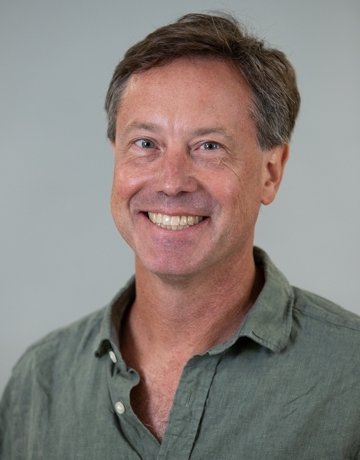
- Department, Office, or School
- Department of History
- RIC AFT
- Professor
- emailechristiansen@ric.edu
- phone401-456-9989
- location_onCraig-Lee Hall, 460
- arrow_circle_downDownload CV
Education
- B.A., University of Miami (Florida)
- M.A., Ph.D., University of Maryland
Courses
- HIST 107 Multiple Voices: The United States in the World
- HIST 201 U.S. History to 1877 – Students examine Native Americans and the impact of European conquest and settlement, institutionalization of slavery, struggle between empires and colonies, the American Revolution and emergence of the American Republic
- HIST 202 U.S. History from 1877 to the Present – Students examine industrial and social revolutions of the early nineteenth century, growing conflict over slavery, Civil War and Reconstruction, and emergence of Modern America through immigration, urbanization, industrialization and globalization
- HIST 203 U.S. History: 1920-Present – Examines the Great Depression and New Deal, World War II and postwar society, the Cold War, movements for race, class, gender equality, the upheavals of the 1960’s, modern conservatism, and the contemporary era.
- HIST 324 Crises of American Modernity, 1914-1945 – Students examine how tradition and modernity clashed in music, art and ideas, and how Americans grappled with prohibition, the Great Depression, global war and the dawn of the atomic age.
- HIST 325 Superpower America 1945-1990 – Students examine how the United States became an atomic superpower, faced new challenges and forced Americans to confront long-simmering conflicts, leading to social revolutions.
- HIST 357 Introduction to Public History – This course is open to everyone (not only public history students) and is highly recommended to anyone interested in thinking about or working on history outside of the classroom. Through concurrent internship and classroom experiences, students examine the potential of public history by collectively defining and articulating visions for the field, developing field-specific skills and exploring history’s roles in society. Students may repeat this course once for credit.
- HIST 350 Special Topics: American History on Film – This course explores movies as a primary source of information about twentieth century American history. The class meets once a week, to allow time for viewing films. Students also watch on their own, and the assigned readings help to contextualize the films and offer guidance to make students more comfortable analyzing non-textual primary sources (such as motion pictures).
- FYS 100: First Year Seminars have included: Hijacking History: The Political Uses of the Past, American Fear, Tales from the Crypt: The North Burial Ground Project, How Did it Come to This? Using History to Confront the Present, The Battle over Critical History and CRT: History Meets the 2020s
Other Information
Research
My interest in American cultural history has led me to explore a variety of time periods and subjects, from 19th century minstrelsy to 1980s television. My book Channeling the Past: Politicizing History in Postwar America examined the relationships between the Cold War, capitalism, and the cultural forms through which Americans learned about the past. I wrote a history of Rhode Island College. I am currently working on a history of the first U.S. refugee law and other research projects related to American society in the 1930s-1940s.
Public History
As the Public History Program Coordinator, I oversee the undergraduate certificate, graduate certificate, and BA programs in public history at RIC. The program emphasizes experiential learning through internship work at historical sites and museums around the region. The program is closely affiliated with RIC’s ongoing North Burial Ground Project.
